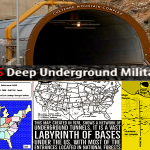The most well-known alien invasion scenarios involve the aliens landing on Earth, destroying or abducting people, fighting and defeating Earth’s military forces, and then destroying Earth’s major cities. Usually, the bulk of the story follows the battles between the invaders and Earth’s armies, as in 1898 H.G. Wells’ The War of the Worlds.
However, not all alien invasion stories follow this plot. In some accounts, the alien invaders will covertly subvert human society using disguises, shapechanging, creating conflict in humanity and let humans destroy themselves, or human allies. In other depictions, the aliens score an overwhelming victory over humanity and the bulk of the story occurs after the aliens have taken over. Sometimes, the aliens do not come from space, but from another dimension. And in some fiction, the invaders may not actually be aliens, but demonic creatures.
In the infiltration scenario, the invaders will typically take human form and can move freely throughout human society, even to the point of taking control of command positions. The purpose of this may either be to take over the entire world through infiltration (Invasion of the Body Snatchers), or as advanced scouts meant to “soften up” Earth in preparation for a full-scale invasion by the aliens’ conventional military (First Wave).
A 1992 firefighter training manual, Fire Officer’s Guide to Disaster Control, addressed the issue of UFOs in a very interesting chapter titled Disaster Control and UFOs.

According to authors Charles “Chuck” Bahme and William Kramer, the two main hazards are powerful anomalous energy fields and psychological impacts, including problematic public anxiety and subsequent behavior that could create public health and safety problems. Some of these safety issues are addressed in the section Adverse Potential of UFOs.
Authors Bahme and Kramer tell us in the conclusion of their chapter on Disaster Control and UFOs that planning, adequate resources and good leadership are all important for public safety professionals who handle many kinds of challenging situations.
This advice probably includes both the conventional and unconventional scenarios that could emerge.








